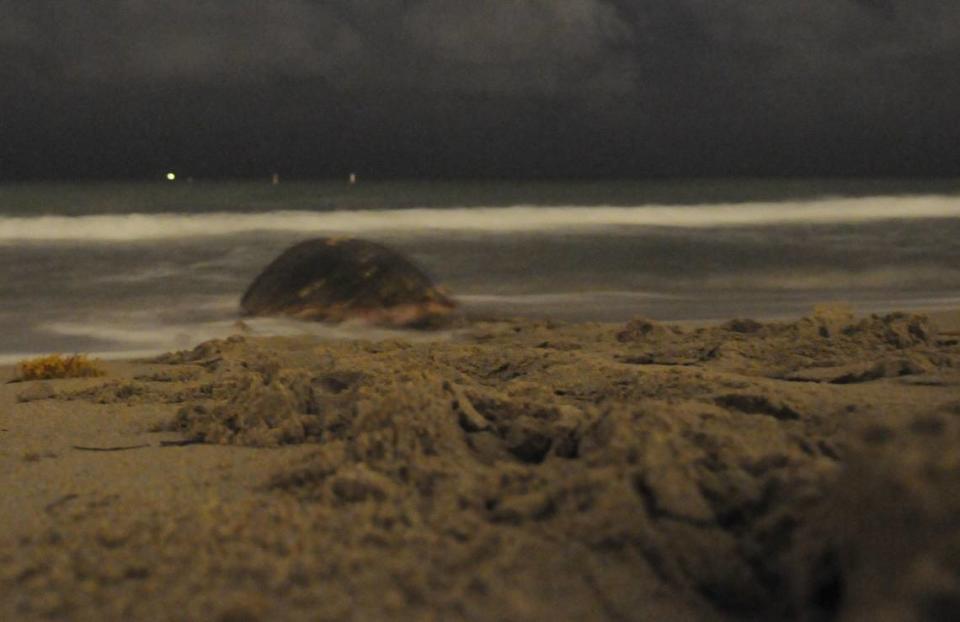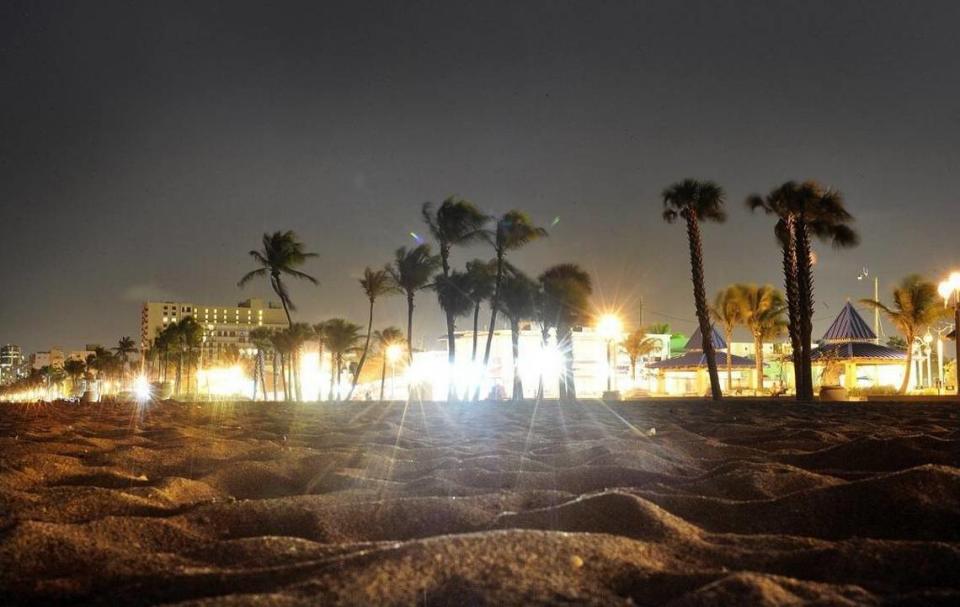A Hilton resort in Fort Lauderdale uses bright lights. It may have killed sea turtles
Two conservation groups said they plan to sue a Hilton resort in Fort Lauderdale Beach for using outdoor lighting that harms and disorients protected sea turtles, which violates the Endangered Species Act.
The Center for Biological Diversity and the Sea Turtle Oversight Protection (STOP) said they intend to sue the Bahia Mar Resort and Marina, a Hilton Double Tree hotel, if it doesn’t change outdoor and indoor lighting practices. They are pressuring Hilton to comply with Fort Lauderdale’s city code aimed at reducing the impact of artificial lighting on sea turtles during nesting and hatching season, which runs through October.
“The Bahia Mar Resort and Marina and the Hilton Double Tree hotel have ignored their responsibility to protect sea turtles from artificial light on their properties for far too long,” Richard WhiteCloud, STOP’s president, said in a statement. “The lights injure and harm sea turtles and their hatchlings and Bahia Mar Resort and Marina, and the Hilton Double Tree hotel must be held accountable for the thousands of sea turtles that have been harmed.”

The groups said that Fort Lauderdale issued citations to the resort for not complying with the beach lighting code in 2016 and 2019. STOP said it has filed 30 complaints with the city since 2014 about the lighting issue.
The resort is located on Seabreeze Boulevard across from South Beach Park, a prime nesting ground for loggerhead and green sea turtles, the groups said. The resort’s hotel, restaurants and marina display bright indoor lights and blue outdoor lights that are visible from the beach, says the notice of intent to sue sent on Aug. 27. The lights have caused the disorientation of 3,853 loggerhead and green sea turtle hatchlings from 2016 to date, the letter said.
Bright lights near beaches can cause nesting females to abandon efforts to lay eggs. Artificial lights also lead hatchlings to move in the wrong direction when they emerge from nests, often causing them to crawl toward hotels and homes instead of the ocean. Sea turtles are among the most threatened animals on earth, under pressure primarily from the loss of nesting habitats around the world and poaching. They make long journeys to mate and nest, and risk being killed by overfishing, pollution and marine debris. Though conservation efforts in places like Florida have improved population numbers over the past couple of decades, the average chance of survival to adulthood is still around 1 percent or less.
Beach lighting and seawall setback ordinances to keep the areas dark and accessible for female nesting turtles are crucial conservation measures, according to scientists. Disorientation “may result in turtles being killed by predators or struck by vehicles, or cause them to die of exhaustion or dehydration,” said the notice.

Lisa Namour, the hotel’s General Manager, said Bahia Mar is working to fix the issues.
“Upon notification of a possible concern, we took immediate action and have implemented several steps to reinforce our commitment to sea turtle protection through the nesting process and their journey to the sea, which includes adjusting certain exterior lights , creating a guest awareness program to engage visitors to support our efforts and eliminating plastic straw use, among other actions, “ she said in an emailed statement.
Fort Lauderdale’s code requires that “no artificial light shall illuminate any area” of the city’s beaches. For existing developments, this requires actions such as turning off lights at night during nesting season, or installing screening, tinting, shielding and other measures to ensure that interior and exterior lights do not reach the beach.
The letter proposes some solutions to Hilton’s lighting problem, including the installation of shields to direct exterior lights toward the ground and the use of turtle-friendly, amber-colored LED lights.
“Fort Lauderdale Beach is prime habitat for these miraculous creatures, and we’re hopeful Hilton will do the right thing by fixing its lighting problem,” said Jaclyn Lopez, Florida director at the Center for Biological Diversity. “With hatchlings continuing to emerge, the resort must act quickly to ensure no more sea turtles are harmed.”

